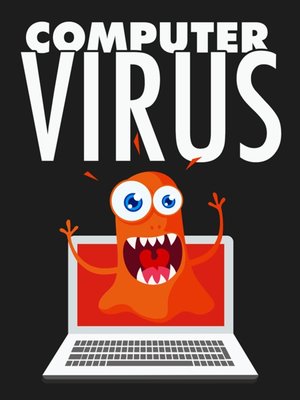
Sign up to save your library
With an OverDrive account, you can save your favorite libraries for at-a-glance information about availability. Find out more about OverDrive accounts.
Find this title in Libby, the library reading app by OverDrive.



Search for a digital library with this title
Title found at these libraries:
| Loading... |
Why Understanding All The Ins And Outs Of Avoiding Viruses Is Crucial!
Computer viruses are unwanted computer programs that can invade your hard drive and cause many different types of damage. Usually viruses are created when someone writes a computer program and embeds harmful software within that program. As soon as other people begin downloading that infected program onto their computers, the virus finds it's way in and negatively alters information stored in the computers. Not one computer virus is alike, there are millions of diverse programs that cause varying amounts of damage to a computer.
Just like human viruses, computer viruses spread rapidly as soon they are created and computers are exposed to the 'infection'. Although instead of traveling through the air, computer viruses disperse themselves all over the internet, sometimes you can get a virus just by clicking on a certain webpage. Many of times computer users will have a virus in their computer for a long period of time before it is detected or before it starts causing greater damage. Even when you have anti-virus software in your computer, it will not always find every virus because the anti-virus software can only find threats already known through that program's database.
A virus will function as an element that will constitute damage to the hard disk contents or interfere with the normal operational executions of the computer system. This will cause the computer to be unable to function properly until the virus is eliminated and the overall system is overhauled and rebooted.
A virus program is usually able to replicate itself and this too is an added problem once the virus latches on to a system. Progressively getting out of control, the virus will attempt to cause as much damage as possible before it can be detected and eliminated. The replication is usually intentional and designed to act just like a Trojan, thus causing the unsuspecting user being caught off guard. If a file that contains a virus is opened, or copied onto another computer, then the other computer will also become infected and this process is repeated every time the file is opened and downloaded onto other systems.
Here are some of the different types of viruses:
* Trojan Horse
* Macro Virus
* Worms
* Rootkit Virus
* Bootsector Virus
* Logic Bombs
* Memory Resident Virus
* Multipartite Virus
Symptoms of virus infection:
* Your computer has unusual activity (e.g. programs crashing a lot or running slowly).
* Messages or images come up unexpectedly.
* A program may start up unexpectedly.
* Your firewall informs that a certain application is trying to connect to the Internet.
* Your friends say that they get emails from you but you did not send any to them.
* You receive many system error announcements. (Note: This may also come from another activity such as a hardware problem or genuine system error)
* Windows does not run when you start up your computer. (Note: This may also come from a hard disk problem)
* You realise that folders and files are removed or changed.
* You find that there's an access to your hard disk (one of the small light is blinking) even though there are no programs running.
* Your web browser has abnormal indications, for example it opens an unknown web page or you cannot close the browser tabs.
* Advertising pages pop up, desktop wallpaper changes.
* Exe files occur and have the same names as the folders.
* On the right corner of your computer, there is a small symbol written "Your computer is infected" or "Virus Alert" etc.
* When you open an...






